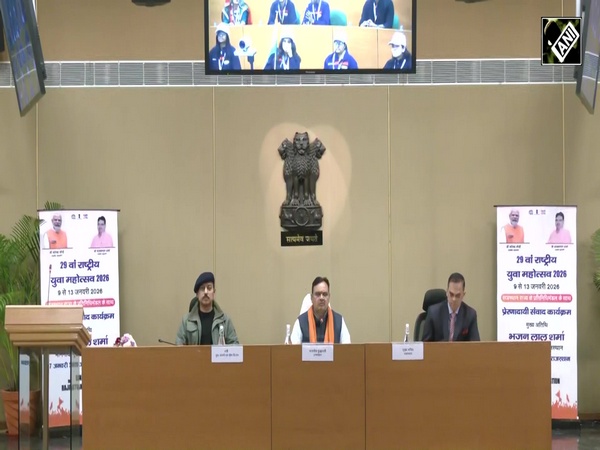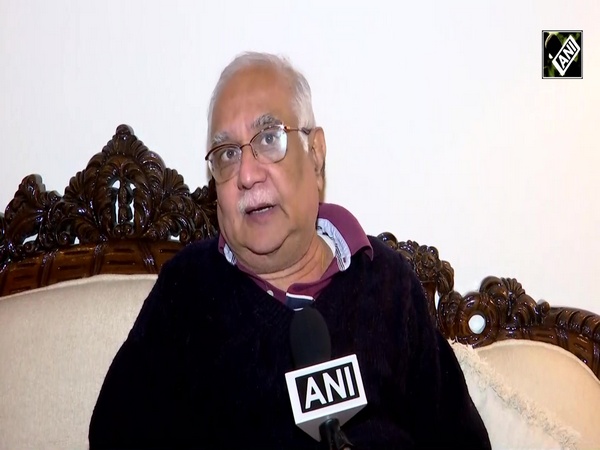Some irresponsible nations with hegemonic tendencies interpreting UNCLOS inappropriately, says Rajnath Singh
Nov 21, 2021

New Delhi [India], November 21 : While calling India a "responsible maritime stakeholder", Union Defence Minister Rajnath Singh on Sunday said some "irresponsible nations" with their narrow partisan interests and hegemonic tendencies are coming up with wrong definitions of the UN Convention on the Law of the Sea (UNCLOS).
After INS Visakhapatnam was formally commissioned into the Indian Navy at the Naval Dockyard in Mumbai, Singh said that India, as a responsible maritime stakeholder, is a supporter of consensus-based principles and a peaceful, open, rule-based and stable maritime order.
Talking about the 'United Nations Convention on the Law of the Sea' (UNCLOS) of 1982, Singh said, "Some irresponsible nations, for the sake of their narrow partisan interests, keep on giving new and inappropriate interpretations to these international laws from hegemonic tendencies. The arbitrary interpretations create obstacles in the path of a rule-based maritime order."
"We envision a rule-based Indo-Pacific, with freedom of navigation, free trade and universal values, in which the interests of all the participating countries are protected," he added, according to a release by the Ministry of Defence.
The Defence Minister lauded the Indian Navy for taking forward the Prime Minister's vision of SAGAR (Security and Growth for All in the Region) with the spirit of friendship, openness, dialogue and coexistence with the neighbours.
He also emphasised the need to keep the Indo-Pacific region open, safe and secure, terming it as the primary objective of the Indian Navy.
Singh asserted that India's interests are directly linked with the Indian Ocean and the region is crucial for the world economy.
"Challenges such as piracy, terrorism, illegal smuggling of arms and narcotics, human trafficking, illegal fishing and damage to the environment are equally responsible for affecting the maritime domain. Therefore, the role of the Indian Navy becomes very important in the entire Indo-Pacific region," he said.
Singh further underscored the importance of rule-based freedom of navigation and security of sea lanes in the present era of globalisation to ensure stability, economic progress and development of the world.
Saying that global security reasons, border disputes and maritime dominance have forced countries to move towards strengthening their military power, Rajnath Singh exhorted the public and private sector to take advantage of Government's policies, work together and make India an indigenous shipbuilding hub.
He listed out a number of reforms undertaken by the Government through which the public and private sector companies can make their mark in the international market.
The steps include simplification of licensing process; speeding up Acceptance of Necessity (AoN) and Request for Proposal (RFP) process; setting up of Defence Industrial Corridors in Uttar Pradesh and Tamil Nadu; positive indigenous lists of over 200 items; Defence Acquisition Procedure 2020 and earmarking around 64 per cent of its modernisation funds under capital acquisition budget for 2021-22 for procurement from domestic companies.

















